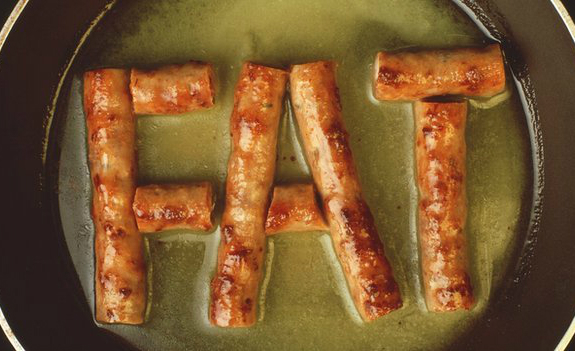Swapping butter for a sunflower spread may not lower heart risk, say British Heart Foundation researchers.
Contrary to guidance, there is no evidence that changing the type of fat you eat from “bad” saturated to “healthier” polyunsaturated cuts heart risk.
They looked at data from 72 studies with more than 600,000 participants.
Heart experts stressed the findings did not mean it was fine to eat lots of cheese, pies and cakes.
Too much saturated fat can increase the amount of cholesterol in the blood, which can increase the risk of developing coronary heart disease.
Saturated fat is the kind of fat found in butter, biscuits, fatty cuts of meat, sausages and bacon, and cheese and cream.
Most of us eat too much of it – men should eat no more than 30g a day and women no more than 20g a day.
There has been a big health drive to get more people eating unsaturated fats such as olive and sunflower oils and other non-animal fats – instead.
But research published in Annals of Internal Medicine, led by investigators at the University of Cambridge, found no evidence to support this.
Total saturated fat, whether measured in the diet or in the bloodstream as a biomarker, was not associated with coronary disease risk in the 72 observational studies.
And polyunsaturated fat intake did not offer any heart protection.
Dr Rajiv Chowdhury, the lead author of the research , said: “These are interesting results that potentially stimulate new lines of scientific inquiry and encourage careful reappraisal of our current nutritional guidelines.”
The British Heart Foundation said the findings did not change the advice that eating too much fat is harmful for the heart.
Prof Jeremy Pearson, the charity’s associate medical director, said: “This research is not saying that you can eat as much fat as you like.
“Too much fat is bad for you.
“But, sadly, this analysis suggests there isn’t enough evidence to say that a diet rich in polyunsaturated fats but low in saturated fats reduces the risk of cardiovascular disease.
“Alongside taking any necessary medication, the best way to stay heart healthy is to stop smoking, stay active, and ensure our whole diet is healthy – and this means considering not only the fats in our diet but also our intake of salt, sugar and fruit and vegetables.”
Source: BBC news


